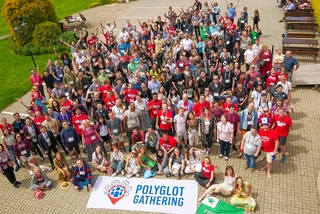Have I ever told you the one about the businessman who gave a presentation to an English-speaking audience in Czech? Every time he cracked even the feeblest of jokes his interpreter handled it with great aplomb, and the audience burst out laughing uproariously. No matter how much he piled on the abstruse cultural allusions, historical references, and convoluted puns, his listeners doubled up with mirth and merriment. Later the interpreter confided: “Actually, every time you said anything that was meant to be funny I just told the audience you had come out with an untranslatable pun or allusion and that they should now please laugh.”
